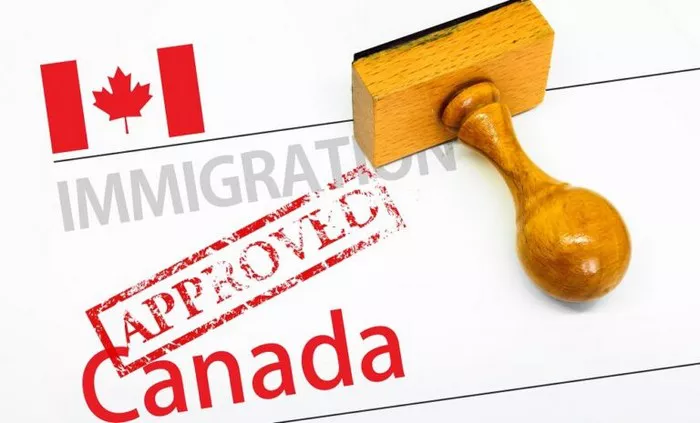Becoming a Canadian permanent resident is a significant milestone for many individuals aspiring to live and work in Canada on a long-term basis. Canada is known for its welcoming attitude towards immigrants, but the process of obtaining permanent residency (PR) involves navigating through various requirements, pathways, and sometimes challenges. This article explores the intricacies of becoming a Canadian permanent resident, outlining the different pathways available, the requirements applicants must meet, and the overall process involved.
Understanding Canadian Permanent Residency
Canadian permanent residency is a status granted to foreign nationals who have been approved to live and work in Canada on a permanent basis. It is different from Canadian citizenship, as permanent residents are still citizens of their home countries. However, permanent residents enjoy many of the same rights and privileges as Canadian citizens, including access to healthcare coverage and the ability to work and study anywhere in Canada.
Pathways to Permanent Residency
There are several pathways through which individuals can apply for Canadian permanent residency. Each pathway has its own set of eligibility criteria and requirements. The main pathways include:
1. Express Entry System: This is the most popular and streamlined pathway for skilled workers who wish to immigrate to Canada permanently. It manages applications for three federal economic immigration programs:
- Federal Skilled Worker Program (FSWP)
- Federal Skilled Trades Program (FSTP)
- Canadian Experience Class (CEC)
2. Provincial Nominee Programs (PNPs): Many provinces and territories in Canada have their own immigration programs designed to meet their specific labor market and economic needs. These programs allow provinces to nominate individuals who wish to immigrate to Canada and settle in a particular province or territory.
3. Family Class Sponsorship: Canadian citizens and permanent residents can sponsor their family members to become permanent residents of Canada. This includes spouses, common-law partners, dependent children, parents, and grandparents.
4. Business Immigration Programs: These programs are designed for individuals with significant business experience and investment capital who wish to invest in and actively manage a business in Canada.
5. Caregivers Program: This program allows individuals who have provided care for children, elderly persons, or persons with disabilities in a private home in Canada to apply for permanent residency.
Requirements for Canadian Permanent Residency
The specific requirements for Canadian permanent residency vary depending on the pathway through which an individual applies. However, common requirements include:
Education and Work Experience: Applicants must often demonstrate a certain level of education and work experience that aligns with the requirements of the immigration program they are applying under.
Language Proficiency: Proficiency in English and/or French is usually required, assessed through standardized language tests such as IELTS (International English Language Testing System) or CELPIP (Canadian English Language Proficiency Index Program).
Health and Security Clearances: Applicants must undergo medical examinations and obtain police certificates to demonstrate that they are in good health and of good character.
Proof of Funds: Some immigration programs require applicants to show that they have enough money to support themselves and their families upon arrival in Canada.
SEE ALSO: DEPORTATION: CAUSES, CONSEQUENCES & LEGAL FRAMEWORK
Challenges in the Permanent Residency Process
While Canada is generally open to immigration and offers multiple pathways to permanent residency, the process can still present challenges for applicants. Some of the common challenges include:
Competitive Selection: The Express Entry system, for example, operates on a points-based system where candidates with the highest Comprehensive Ranking System (CRS) scores are invited to apply for permanent residency. Achieving a high CRS score can be competitive, especially in popular occupations or provinces.
Documentation and Verification: The immigration process requires extensive documentation, which must be accurate and verifiable. Any discrepancies or incomplete information can delay the application process.
Changing Policies and Requirements: Immigration policies and requirements can change over time, affecting eligibility criteria and application processes. Keeping up-to-date with these changes is crucial for prospective applicants.
Processing Times: The time it takes to process permanent residency applications can vary depending on the pathway and the volume of applications received by immigration authorities. Delays in processing times can be frustrating for applicants.
Tips for Success
To improve the chances of successfully obtaining Canadian permanent residency, applicants can consider the following tips:
Plan Early: Start researching and preparing for the application process well in advance to understand the requirements and gather necessary documents.
Improve Language Skills: Investing in language skills through language courses or practice tests can significantly boost CRS scores and improve eligibility.
Seek Professional Advice: Consulting with an immigration lawyer or registered consultant can provide valuable guidance and ensure that the application is accurate and complete.
Stay Informed: Regularly check for updates to immigration policies and procedures to adapt to any changes that may affect the application process.
Conclusion
Becoming a Canadian permanent resident offers numerous benefits and opportunities for individuals seeking to build a new life in Canada. While the process can be complex and challenging, understanding the pathways, meeting the requirements, and staying informed can greatly improve the likelihood of success. Canada’s commitment to immigration as a driver of economic growth and cultural diversity underscores its reputation as a welcoming destination for immigrants from around the world.


